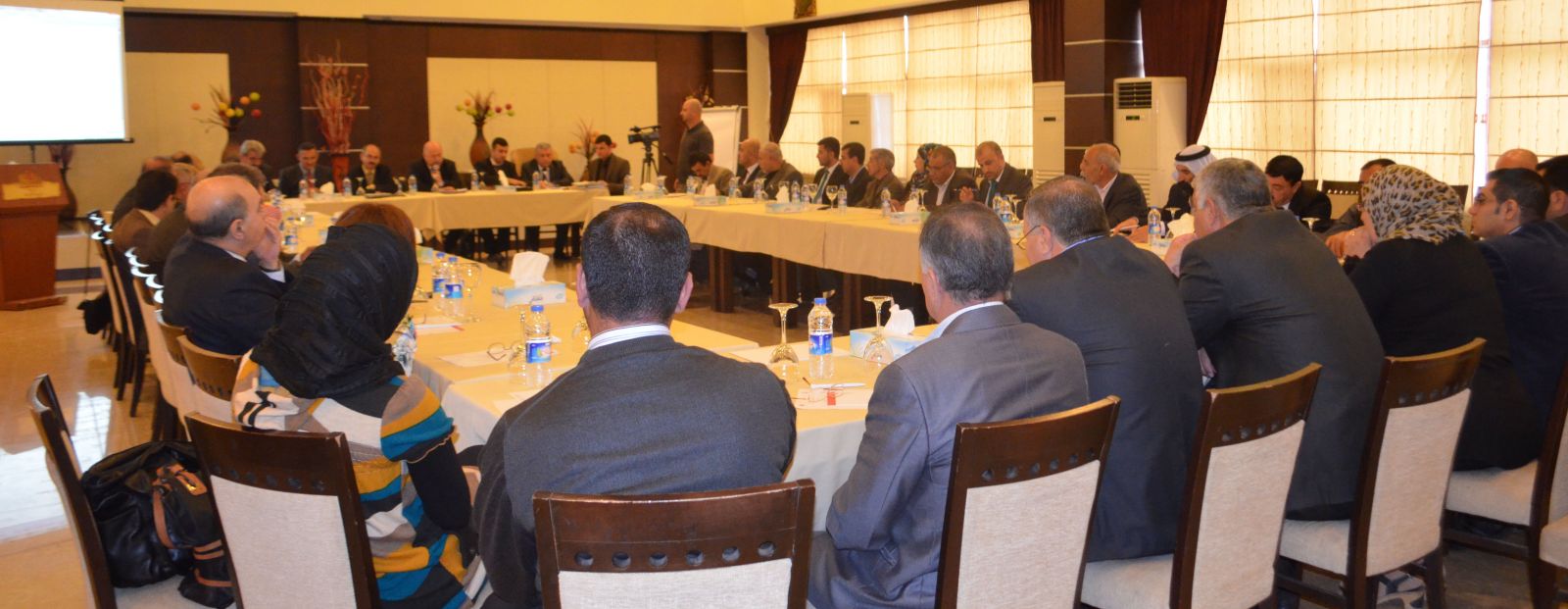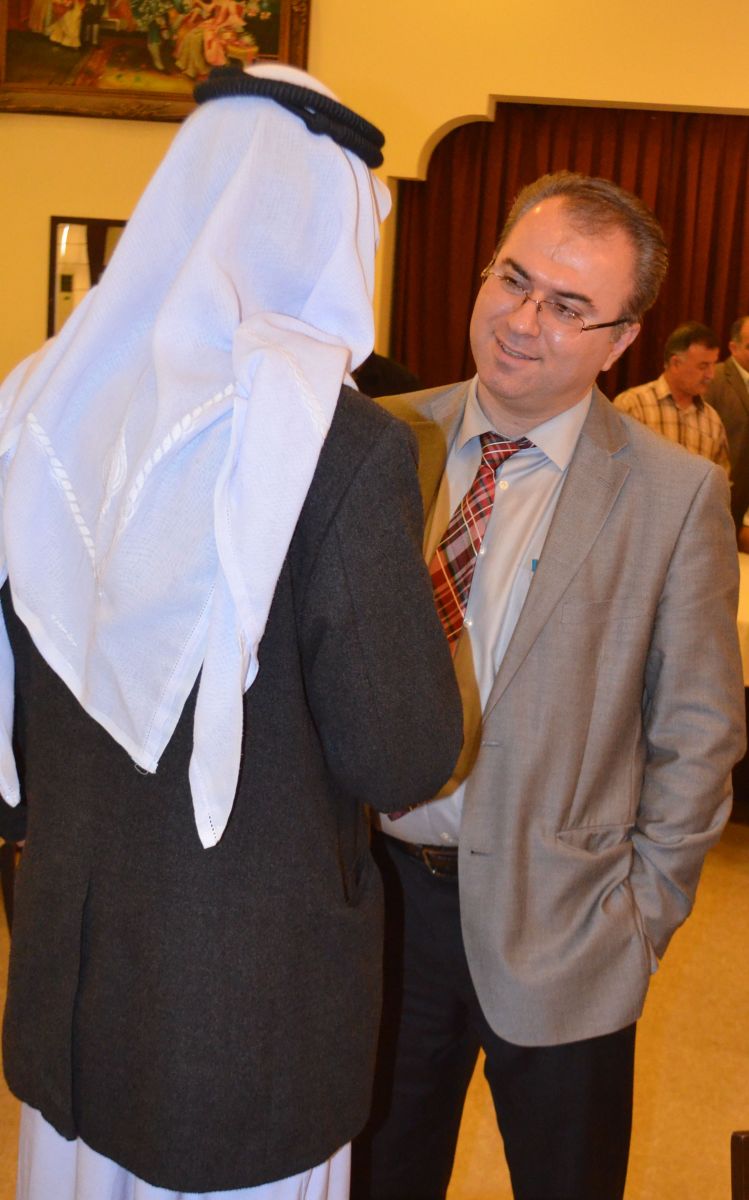The heavy rains that flooded several Iraqi provinces in the past two weeks triggered widespread public criticism, including some demonstrations. It was a reminder that, especially as the country struggles with high levels of violence, frustration remains high over the generally poor quality of services and other governance challenges. Iraq’s minorities offer a good example of how engaged civil society can address such frustrations before they become an added source of instability.

The Alliance of Iraqi Minorities (AIM), supported by the U.S. Institute of Peace (USIP), held its annual general assembly meetings in the northern Iraqi province of Duhok earlier this month. The general coordinator of AIM, William Warda, outlined the overall status of the organization and said AIM is emerging as a recognized resource for the government and international organizations. The finance committee highlighted the challenge of collecting membership dues, the group’s only revenue stream. Generally, it was clear that AIM has made significant progress as an institution and an advocate for minorities, but that it still faces considerable challenges.
It was inspiring to witness the passion, courage and dedication of the members and hear about their achievements, despite the adversity they confront as minorities and as an organization in a country where independent civic activism is still relatively new. Many of the members live and work in high-threat areas, and travelled to the meeting at great personal risk along dangerous roads. They described to me the difficulty of their situations and their fears for the future; they see violence increasing and their numbers decreasing as some fall victim to attacks and others flee Iraq for safer locations abroad. They are very concerned about their safety and the very existence of minorities in Iraq.
|
|
The general assembly of the Alliance of Iraqi Minorities hears opening remarks from General Coordinator William Warda. |
AIM formed in 2011, growing out of dialogues fostered by USIP a year earlier that brought together representatives of minority groups including Shabaks, Christians, Eyzidis and others. Alliance members received training and other support from USIP and followed with their first proposal for funding on curriculum reform. In 2012 and 2013, they focused on developing participatory budget practices, working with government officials to ensure cooperation and coordination in a way that hadn’t been typical in the past. They also lobbied for curriculum reform that now more fully recognizes Iraq’s minorities in school textbooks and studies. USIP has plans and funding to support AIM for the next two years.
Joint efforts of AIM and the Minority Caucus in Iraq’s elected Council of Representatives culminated in provisions in the 2012 budget law to provide the legal foundation for more equitable distribution of funds from Iraq’s regional and provincial development budget. Using a participatory budgeting process, AIM then closely engaged with the provincial council, district and sub-district managers, and with the minority communities in Ninevah Province, to convert the law into specific public-service projects, such as health clinics, roads, and schools.
While lack of services is a general problem in Iraq, it is further exacerbated for minorities because they tend to live in geographic areas where control is hotly disputed by Iraq’s central authorities and the Kurdistan Regional Government. As a result, neither government feels accountable to minorities. Terrorist organizations like the Islamic State of Iraq and Sham (ISIS), which mainly operates in Iraq and Syria, target minorities and cause forced displacement. This, in addition to migration of some minority groups to areas populated by others – such as Shabaks moving to Christian areas – disturbs population balances and creates perceptions of threats to identities. That, in turn, leads to disputes and the risk of violent conflicts.
The Alliance also must confront important internal questions. It needs to further solidify as an organization, and remain relevant as a leader in a changing environment. The members asked for better internal communications, which have been hampered because of limited internet and phone connectivity, security deterrents to travel, financial limits, and the lack of permanent office space. Some of the members called for more monitoring and evaluation of programs, which triggered its own discussion on how to evaluate the work of an organization comprised of volunteers. AIM formed a new committee to explore that topic.
|
|
USIP Senior Program Officer Sarhang Hamasaeed and a member of AIM discuss the Alliance and the challenges Eyzidis face in Iraq. |
Still, AIM’s work and its engagement with the government and minority communities is an example of how a “nuts-and-bolts” process of democracy can prevent and mitigate violence. It demonstrates how activism and methodical collective action can nurture constructive discussion and tap into Iraq’s wealth to make things happen. In addition to the historic changes to the Iraqi education curriculum by the Ministry of Education, including the addition of texts from their holy books and literary works, AIM is working with other organizations such as the United Nations and with the Iraqi government on a draft law on minorities prepared by the Council of Representatives.
USIP and AIM are now working together to share the organization’s approach and its experience in participatory budgeting with other communities in Ninevah and elsewhere. The hope is that the strategy of bringing citizens and their governing officials together at the local level to address concrete problems will help ease some of the grievances that have in the past led to protests, violence, and even loss of life.
There is no question that violence in Iraq is driven by complex factors, compounding AIM’s and others’ challenges, but many parts of the country wish to move forward to the extent that they can under the circumstances. The experience of AIM offers a good example to emulate. USIP and its main partner organization on the ground, Sanad for Peacebuilding, are trying to help AIM share and expand its experience. AIM’s approach also could be applied to an effort by the U.S. Agency for International Development and implementing partners to broaden citizen participation through civil society.
While the Iraqi government may argue that the recent floods were a natural disaster, and not a result of a government failure to build better drainage and sewer systems, the public reaction is a reminder that it is more than terrorism that ails Iraq and creates triggers of instability. Engaging with civil society organizations such as AIM could encourage citizens to be part of the solution, help manage their expectations, and provide a path for more stable and peaceful governance.





